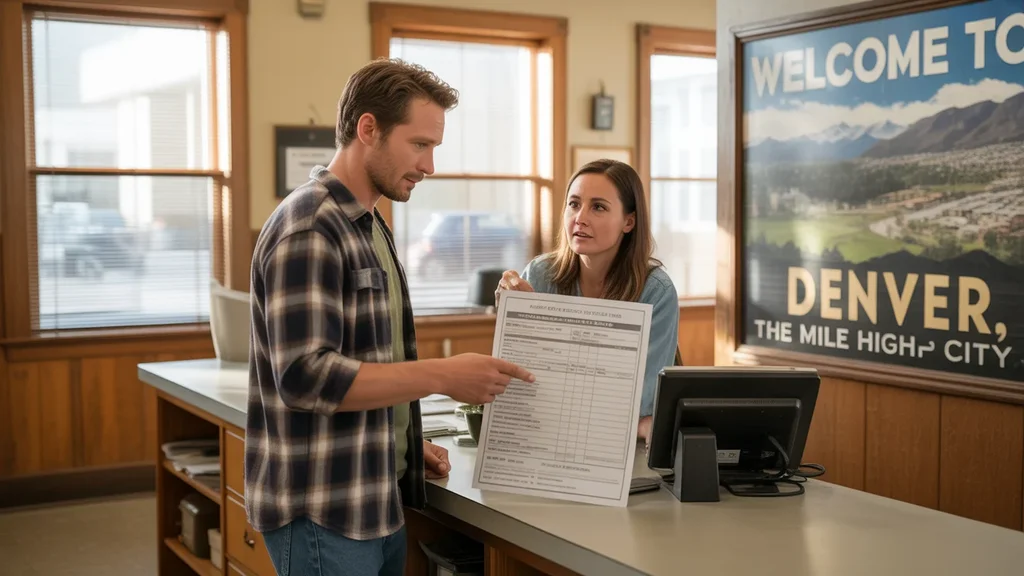Unexpected Living Costs in Denver

When budgeting for life in the Mile High City, it’s important to look out for hidden fees in Denver that can catch residents and newcomers off guard. Surprise fees in Denver can add $100–$300 per month depending on your home, usage, and neighborhood. Being aware of these common charges can help you plan more accurately for the true cost of living.
From utilities and permits to services and seasonal expenses, Denver has its share of city-specific fees that aren’t always obvious at first glance. Knowing what to expect can save you from sticker shock and help you allocate your budget more effectively.
Common Utility and Service Fees
Denver residents often encounter extra fees tacked onto their standard utility bills. These charges can vary based on your usage, property size, and location. Some common ones to watch for include:
- Trash collection fees – typically $10-25/month
- Recycling surcharges – often an additional $5-10/month
- Water overages or tiered rates for high usage
- Storm runoff fees based on square footage of your property
- Metered irrigation costs for watering your lawn or garden
While some of these fees may seem small, they can really add up over the course of a year. For example, an extra $20/month for trash and recycling equals $240 annually. It’s wise to closely review your utility statements each month and ask about any line items you don’t understand.
Permit and Inspection Fees
Whether you’re a homeowner or renter in Denver, you may be subject to various permit and inspection fees. These commonly include:
| Fee Type | Typical Cost |
|---|---|
| Short-term rental license | $50-150 annually |
| Residential parking permit | $25-50 per vehicle |
| Home renovation building permit | Varies based on project scope; $100-500+ |
Expect to pay $250–$750 for a basic home improvement permit in Denver. Always check with the city and your HOA before starting any projects. Failure to obtain proper permits can result in costly fines.
Understanding Property Tax and HOA Fees in Denver is also crucial, as these can vary widely based on your neighborhood and home type. HOA violation fines for things like unapproved exterior changes or unkempt lawns typically start around $50-100 per infraction and can escalate quickly.
Neighborhood-Specific or Seasonal Charges
Depending on where you live in Denver, you may face additional fees specific to your neighborhood or that only come up seasonally. These might include:
- Community pool or clubhouse upkeep fees
- Special landscape maintenance or improvement districts
- Bulk trash collection events (usually 1-2 times per year)
- Mosquito abatement charges during summer months
Some Denver HOAs bill quarterly or annually for these types of charges instead of monthly. When you move into a new home or neighborhood, always request a full breakdown of any additional fees to expect throughout the year.
How to Plan for These Hidden Costs
The best way to prepare for hidden fees in Denver is to do your research and budget accordingly. When evaluating Denver utility costs, factor in a buffer of 10-15% on top of the base rates to account for extra charges.
🏆 Planning Tip: Ask for the last 12 months of utility statements when buying a home in Denver. This will give you the clearest picture of the true costs.
For HOA and neighborhood fees, carefully review all governing documents and ask plenty of questions before buying or signing a lease. Find out how often fees are assessed, how they’re billed, and what special charges may come up throughout the year.
FAQ: Hidden Costs of Living in Denver
Do HOA fees include everything?
Not always. Additional neighborhood fees may be billed separately, so ask for a full breakdown.
What’s the most overlooked city fee?
Storm runoff and drainage fees based on the size of your property are easy to miss.
Can landlords charge separately for trash or irrigation?
Yes, if outlined in your lease. Always ask for a full list of utility responsibilities.
Avoiding Surprise Charges in Denver
Now that you know some of the most common hidden fees to expect in Denver, you can plan ahead to avoid surprises. Remember to:
- Closely review utility bills and ask about unfamiliar charges
- Get a full list of HOA and neighborhood fees before buying or renting
- Budget an extra 10-15% cushion for variable costs like water and trash
- Obtain proper permits for any home renovations or short-term rentals
By doing your due diligence and planning accordingly, you can enjoy all that Denver has to offer without being caught off guard by hidden fees. For more tools and insights on budgeting for life in Denver, check out our full cost of living guide and expense breakdown worksheets.
